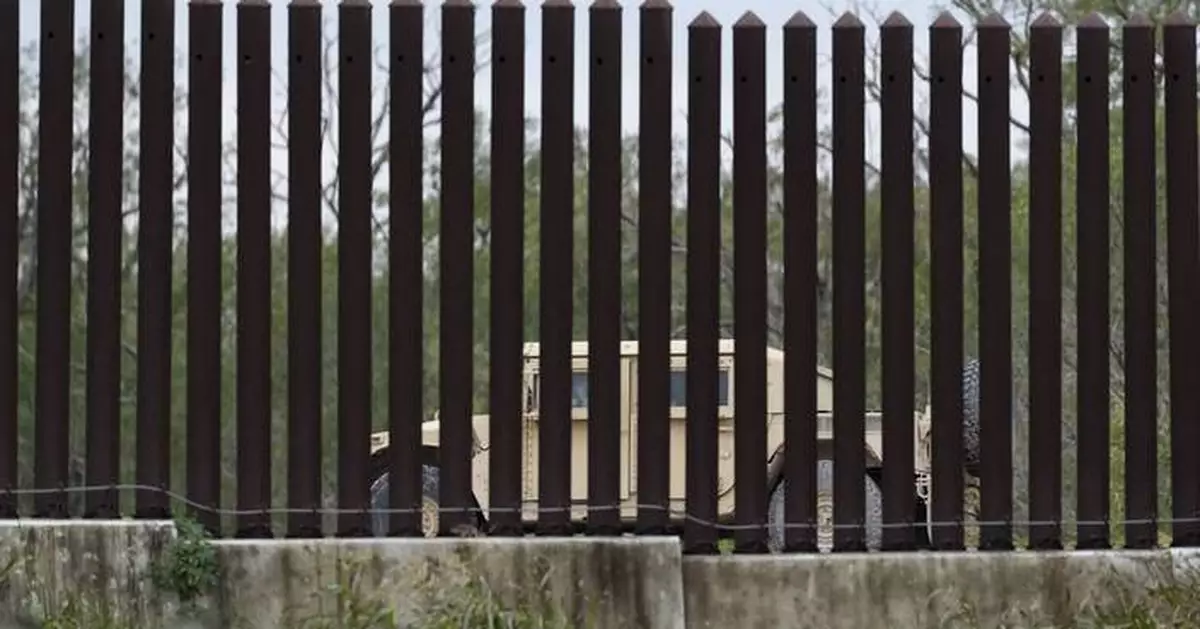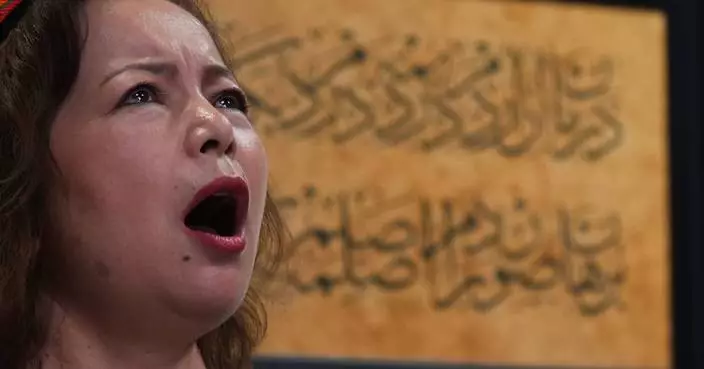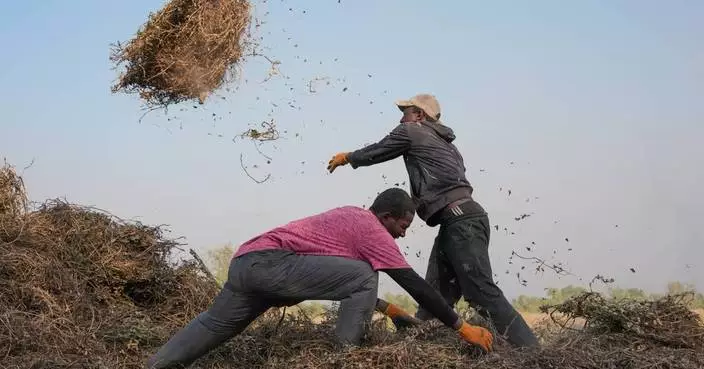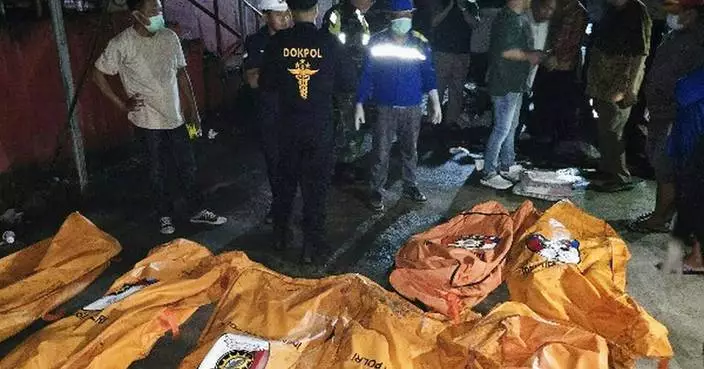WASHINGTON (AP) — Many U.S. adults are on board with the idea of beefing up security at the southern border and undertaking some targeted deportations, according to a new poll. But as President Donald Trump begins his second term with a series of sweeping executive orders on immigration, the findings suggest his actions may quickly push the country beyond the limited consensus that exists on the issue.
There is a clear desire for some kind of action on U.S.-Mexico border security, according to the survey from The Associated Press-NORC Center for Public Affairs Research. Half of U.S. adults think increasing security at the border should be a high priority for the federal government, according to the poll, and about 3 in 10 say it should be a moderate priority. Just 2 in 10, roughly, consider it a low priority.
The vast majority of U.S. adults favor deporting immigrants convicted of violent crimes, and the Trump administration's deportation efforts may begin there. But Trump's initial executive orders have gone far beyond that — including efforts to keep asylum-seekers in Mexico and end automatic citizenship.
And Trump, a Republican, is continuing to signal an aggressive and likely divisive approach, with promises to deport millions of people who entered the country illegally while declaring a “national emergency at our southern border.” About 4 in 10 American adults support deporting all immigrants living in the U.S. illegally, and a similar share are opposed.
Most Americans think local police should cooperate with federal immigration authorities on deportations in at least some cases, but implementation could quickly become unpopular. On Tuesday, the Trump administration threw out policies limiting arrests of migrants in sensitive places like schools and churches, even though a shift to such arrests would be largely unpopular.
Immigration was a key issue in the 2024 election, and the poll indicates that it's still a high priority for many Americans as Trump takes office.
Illegal border crossings soared under Trump's predecessor, President Joe Biden, with border arrests from Mexico reaching a record-high of 250,000 in December 2023. Despite Trump’s claims of an immigrant invasion, crossings have plunged since then, amid increased Mexican enforcement and the Democratic Biden administration’s June 2024 order that dramatically limited asylum claims at the border.
But memories of those rising numbers, and the chaos that ensued when migrants were bused by Republican governors to northern cities, may have helped shape American attitudes. The survey found that about half of Americans think the government is spending “too little” on border security, and the vast majority favor deportations of people who have been convicted of violent crimes.
“I want to see more people coming here legally,” said Manuel Morales, a 60-year-old Democrat who lives near Moline, Illinois. He first came to America by crossing the border illegally from Mexico nearly 40 years ago. “But at the same time, I’m against all these caravans coming (to the border), with thousands and thousands of people at one time,” said Morales, a technician for an internet provider.
He’s deeply sympathetic to migrants who come to the U.S. to escape repression or poverty and feels that too many Americans don’t understand the yearslong efforts required to enter the U.S. legally. Yet, he also believes the number of migrants has simply become too great in the past few years.
“We cannot just receive everybody into this county,” he said.
Trump rarely gives specifics when he calls for mass deportations, but the survey indicates many Americans are conflicted about mass roundups of people living in the U.S. illegally.
Removing immigrants who are in the country illegally and have not committed a violent crime is highly divisive, with only about 4 in 10 U.S. adults in support and slightly more than 4 in 10 opposed.
And relatively few Americans, about 3 in 10, somewhat or strongly favor changing the Constitution so children born in the U.S. are not automatically granted citizenship if their parents are in the country illegally. About 2 in 10 are neutral, and about half are somewhat or strongly opposed.
Doug DeVore is a 57-year-old Republican living in southern Indiana who believes that immigration “went haywire during the Biden administration.”
But the idea of large-scale operations to check people's immigration status makes him uncomfortable.
“I probably wouldn’t be 100% against it,” he said. “But there’s that fine line" between gathering information on people living in the U.S. illegally and automatically deporting them, added DeVore, who works in a candy factory.
As the Trump administration prepares to attack sanctuary jurisdictions that limit cooperation with federal immigration authorities, the poll finds that the vast majority of U.S. adults think police in their community should cooperate with federal immigration authorities to deport people who are in the country illegally in at least some cases.
Only about 1 in 10 Americans say the local police should never cooperate with federal law enforcement on these deportations.
There's a divide, though, on whether cooperation should happen across the board or if it should happen only sometimes. About two-thirds of Republicans say local police should always cooperate, a view that only about one-quarter of Democrats share. But relatively few Democrats say local police should never cooperate and most, about two-thirds, say cooperation should happen in some cases.
And a wave of arrests could quickly spark a backlash, depending on how they happen. U.S. immigration agents have long abided by guidance that deters arresting parents or students at schools and other sensitive places, but some of Trump’s rhetoric has raised questions about whether those policies will persist.
The poll finds that a shift toward arresting people in the country illegally at places like churches and schools would be highly unpopular. Only about 2 in 10 U.S. adults somewhat or strongly favor arresting children who are in the country illegally while they are at school, and a similar share support arresting people who are in the country illegally while they are at church. Solid majorities, about 6 in 10, oppose these kinds of arrests.
Even Republicans aren't fully on board — less than half favor arrests of children in schools or people at church.
Sullivan reported from Minneapolis.
The AP-NORC poll of 1,147 adults was conducted Jan. 9-13, using a sample drawn from NORC’s probability-based AmeriSpeak Panel, which is designed to be representative of the U.S. population. The margin of sampling error for adults overall is plus or minus 3.9 percentage points.
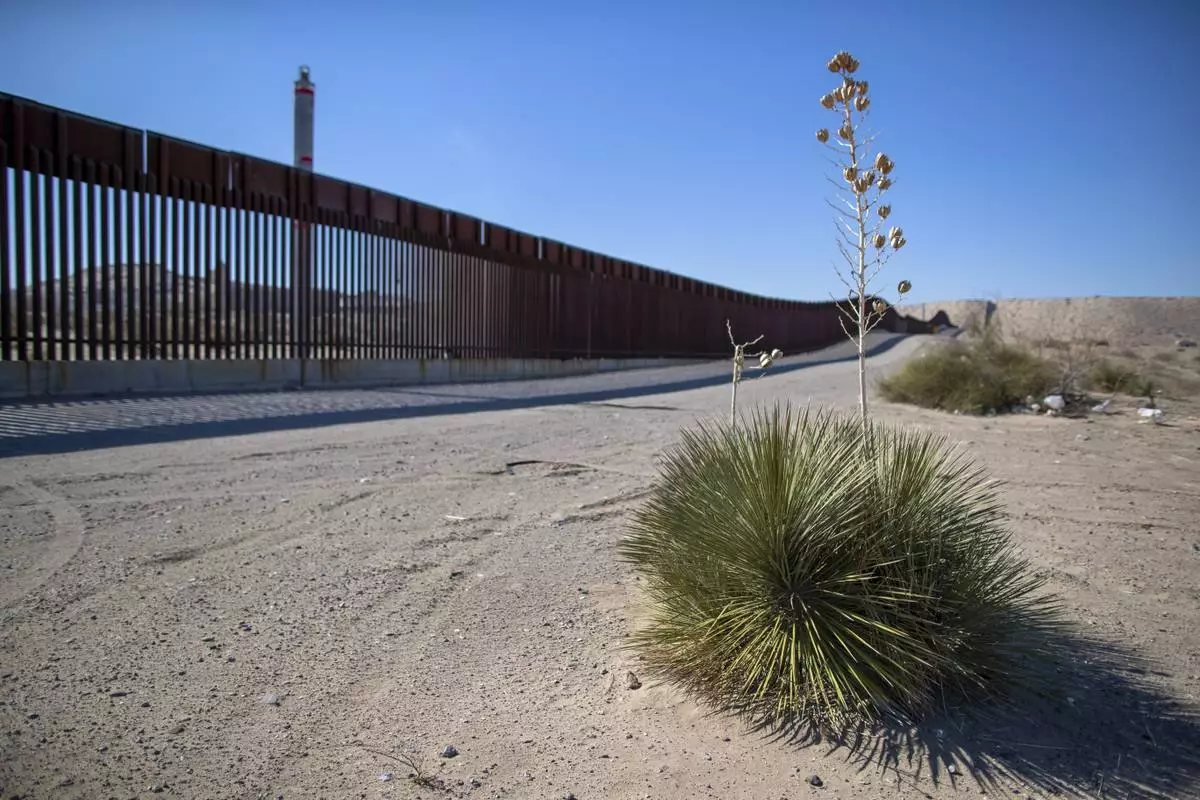
A yucca plant is backdropped by the border wall in Sunland Park, N.M., Tuesday, Jan. 21, 2025. (AP Photo/Andres Leighton)
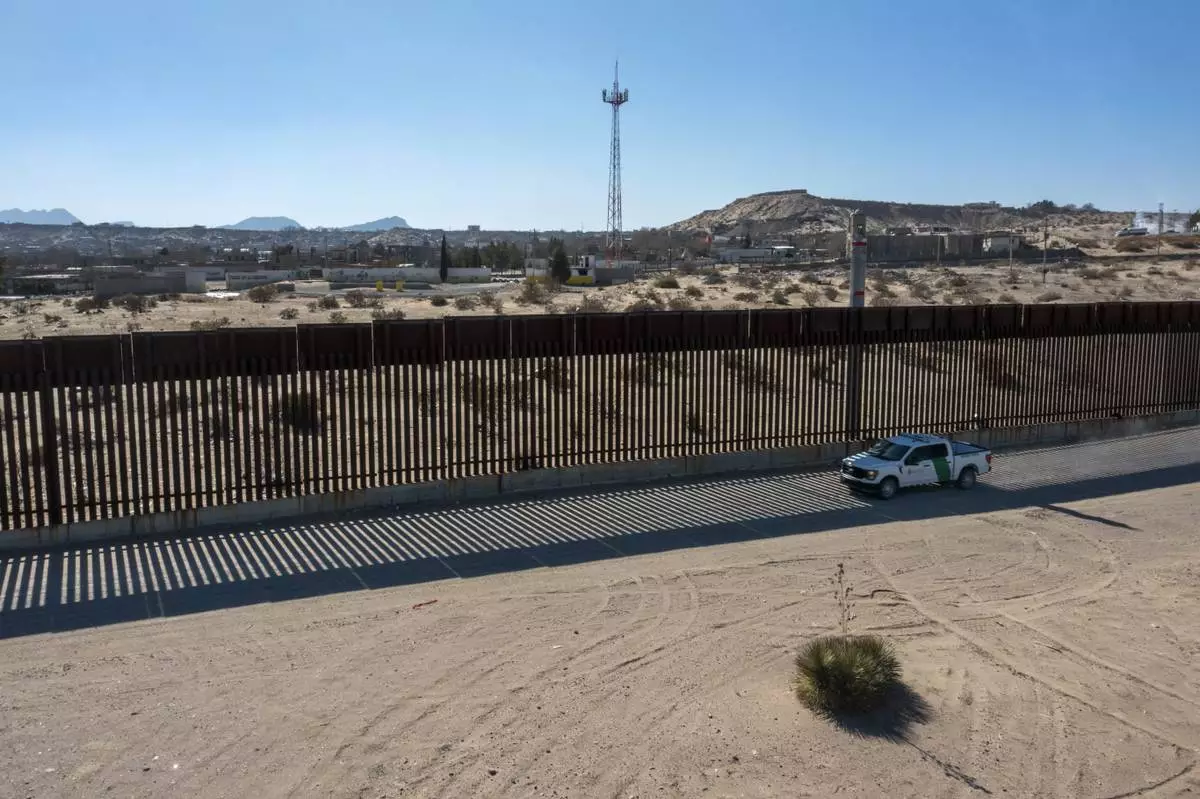
A Border Patrol truck rides along the border wall in Sunland Park, N.M., Tuesday, Jan. 21, 2025. (AP Photo/Andres Leighton)
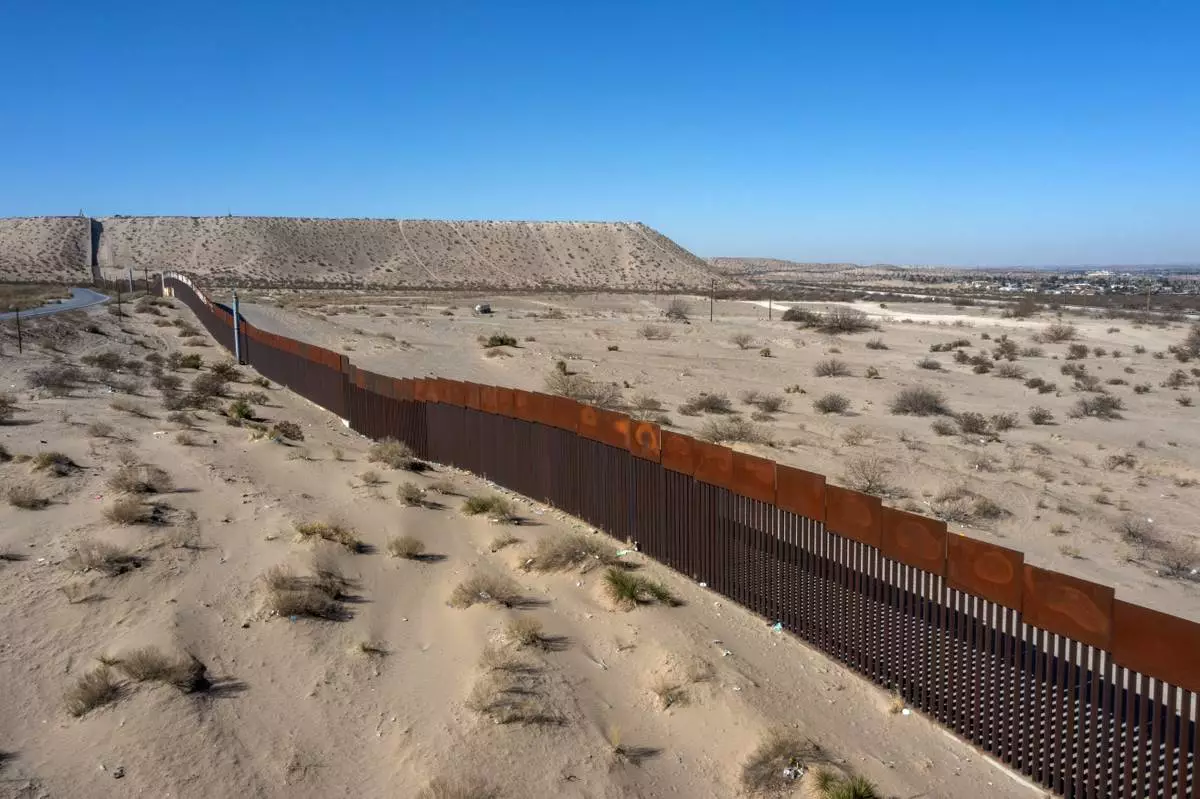
The border wall between Mexico, left, and the United States is pictured in Sunland Park, N.M., Tuesday, Jan. 21, 2025 in El Paso, Texas. (AP Photo/Andres Leighton)
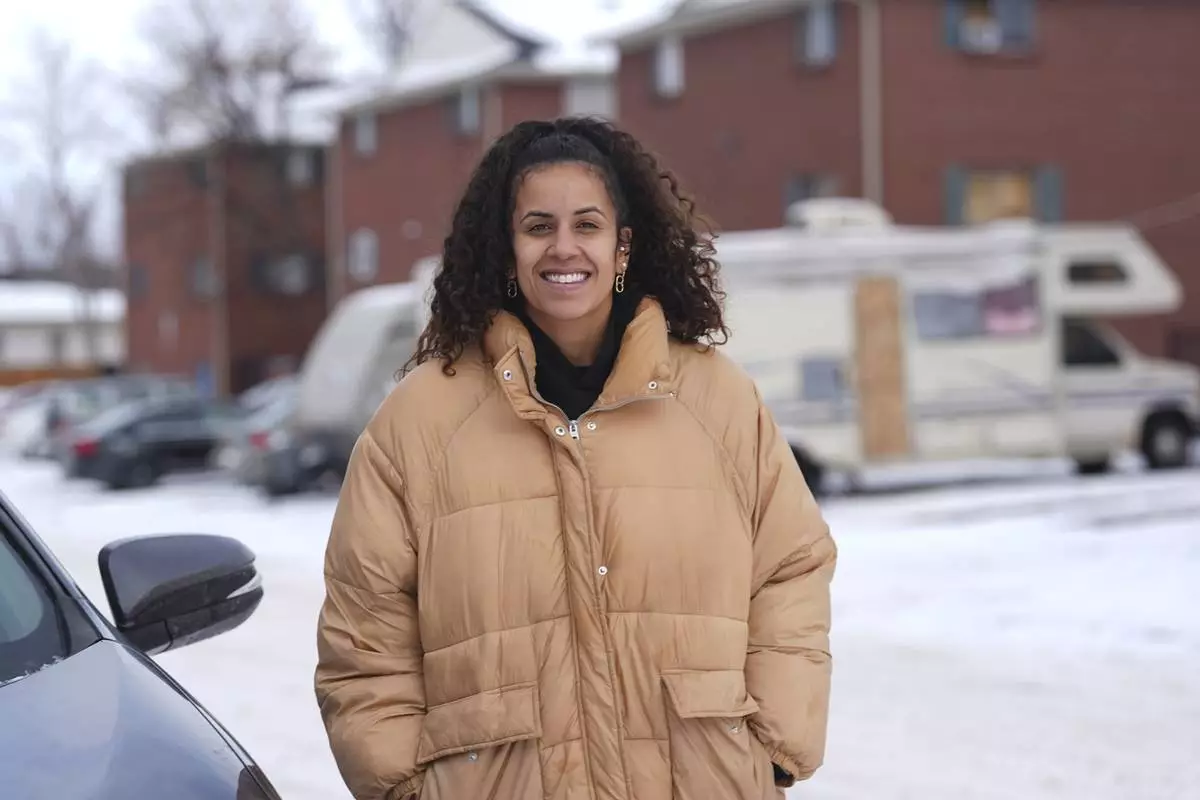
Katie Leonard, an organizer for the Party for Socialism and Liberation, is shown outside the apartment buildings at the center of an immigration controversy Tuesday, Jan. 21, 2025, in Aurora, Colo. (AP Photo/David Zalubowski)
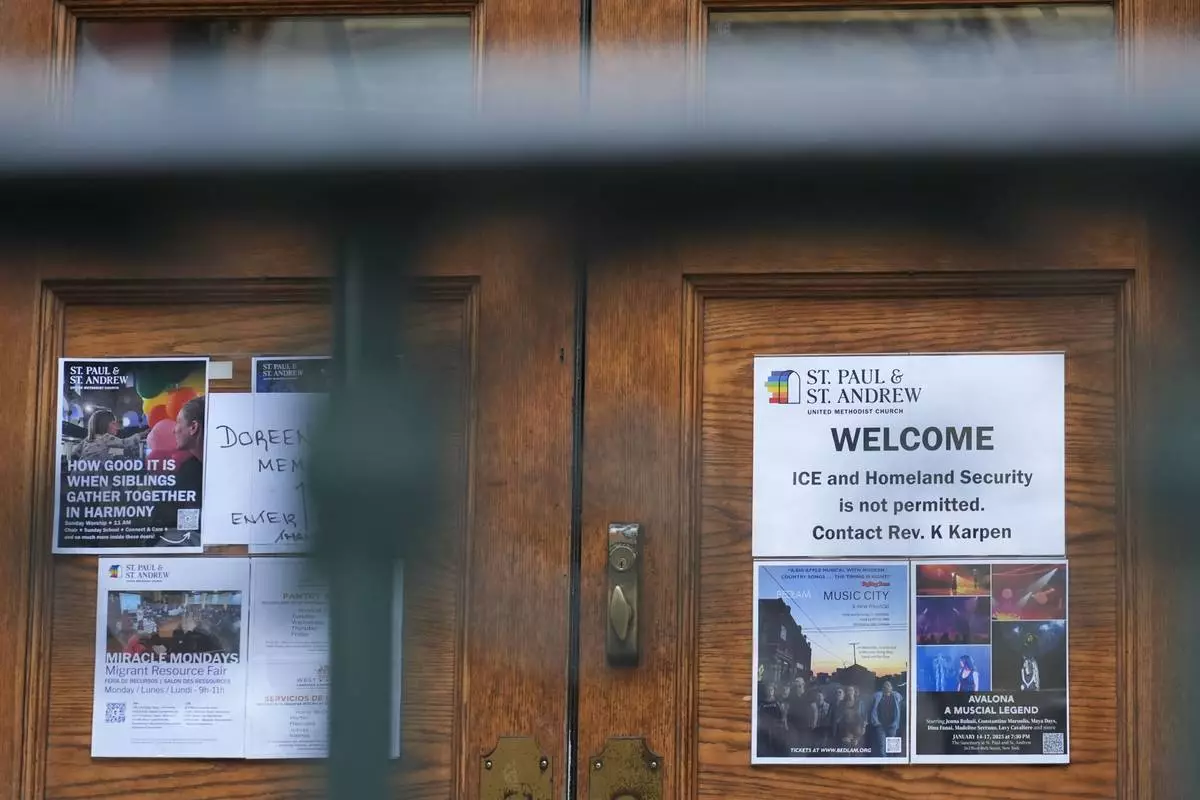
A sign that prohibits the entrance of ICE or Homeland Security is posted on a door at St. Paul and St. Andrew United Methodist Church in New York, Tuesday, Jan. 21, 2025. (AP Photo/Seth Wenig)
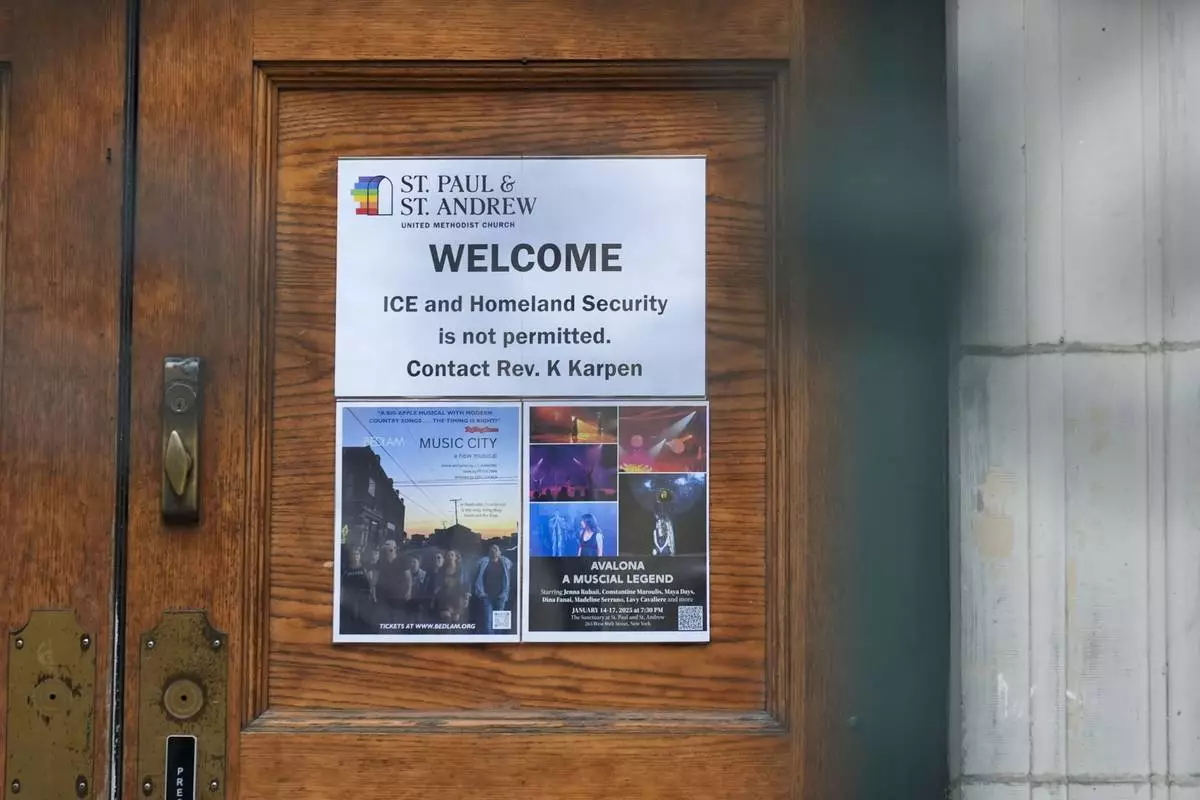
A sign that prohibits the entrance of ICE or Homeland Security is posted on a door at St. Paul and St. Andrew United Methodist Church in New York, Tuesday, Jan. 21, 2025. (AP Photo/Seth Wenig)
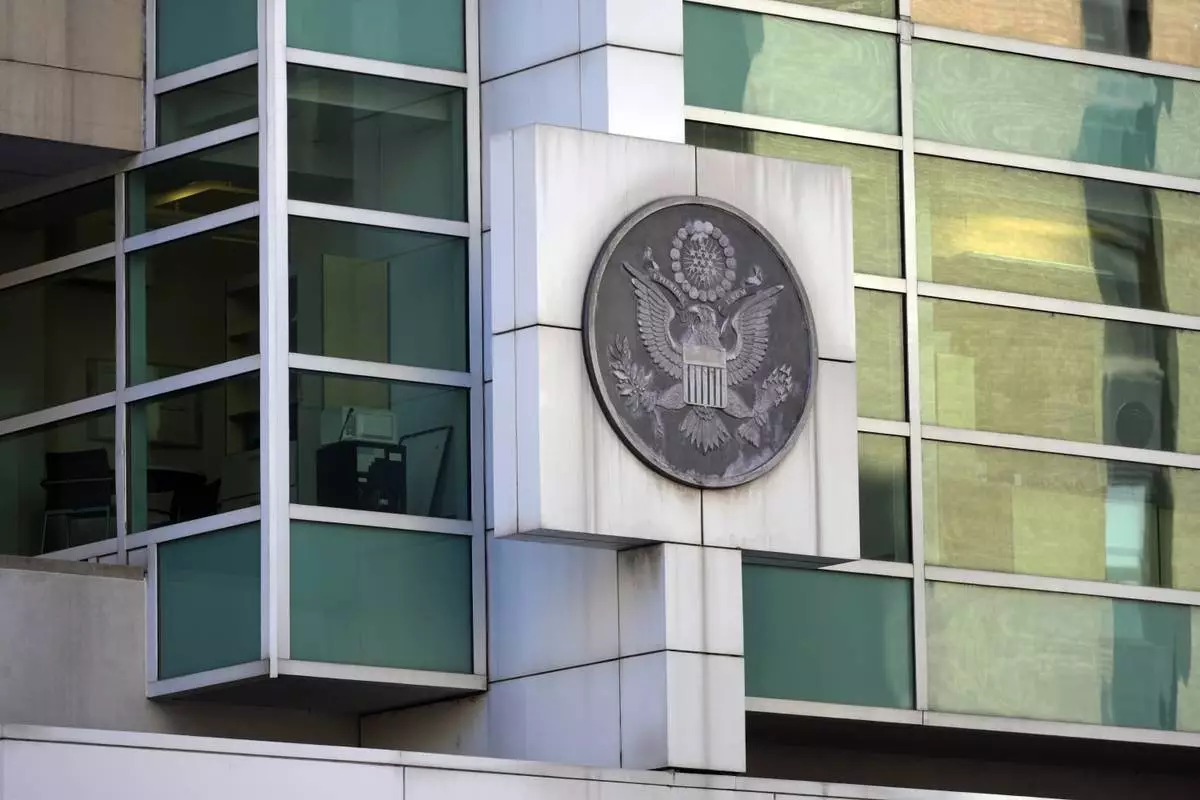
The U.S. Immigration and Customs Enforcement building can be seen Tuesday, Jan. 21, 2025, in downtown Chicago. (AP Photo/Erin Hooley)
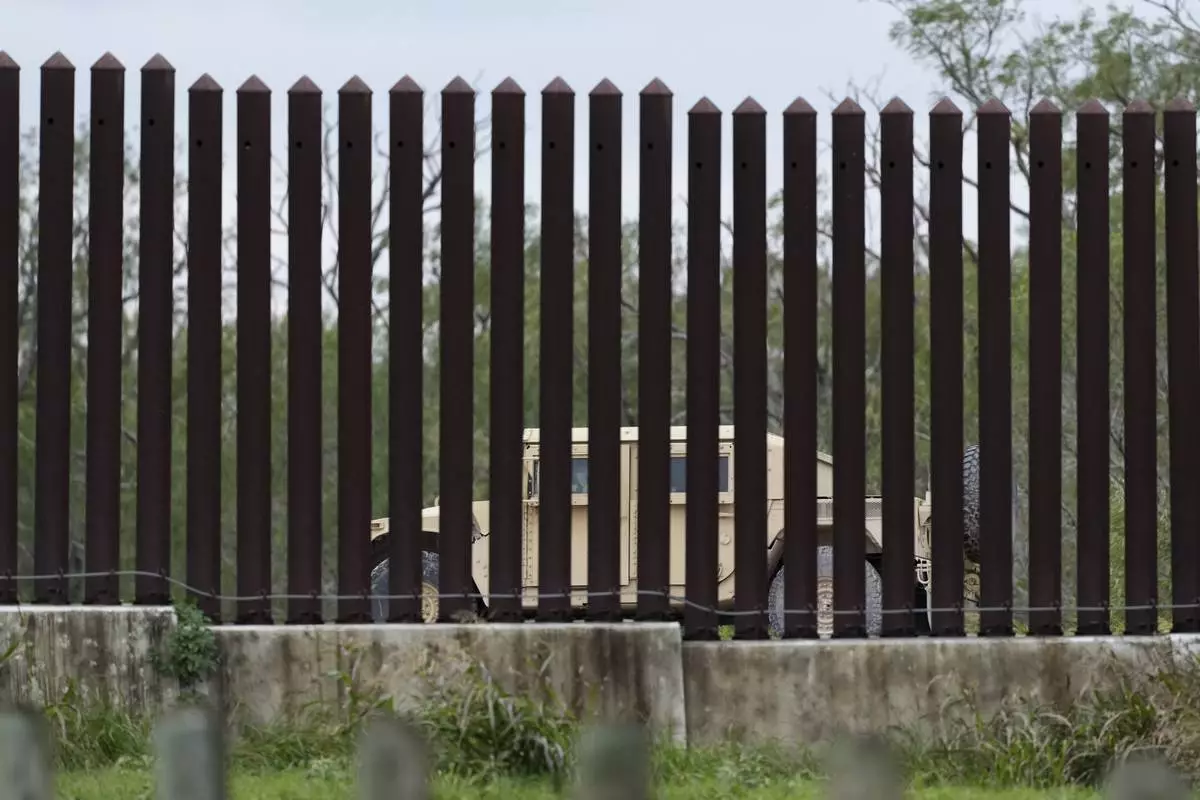
A national guardsman patrols along a stretch of boarder wall, Tuesday, Jan. 21, 2025, in Brownsville, Texas. (AP Photo/Eric Gay)


